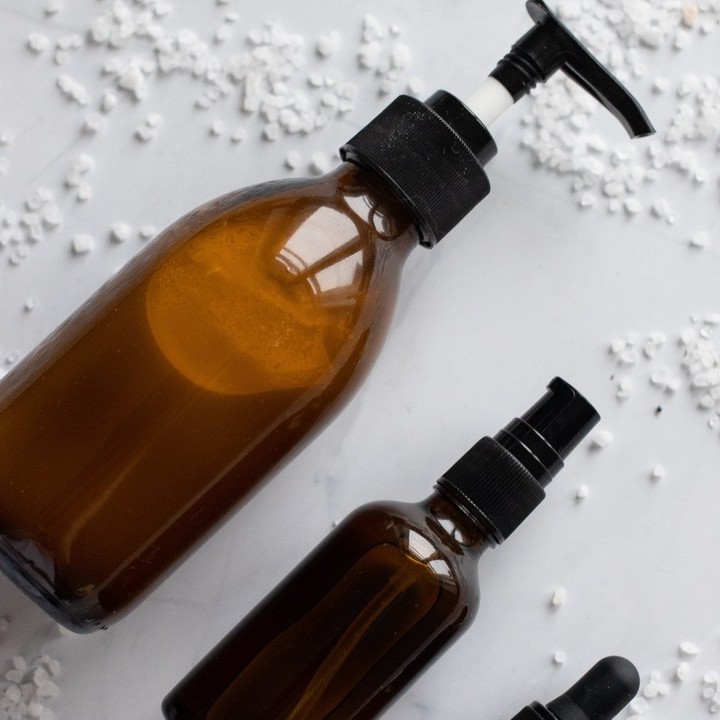
Tanning Oil: Types, Benefits and Risks
Tanning Oil: Types, Benefits and Risks
Tanning oil has become a staple for many sunbathers and beach enthusiasts. Its allure lies in the promise of a quicker, deeper tan. However, like many beauty products, tanning oil comes with its own set of benefits and risks. Understanding these can help individuals make informed decisions about their sun exposure and skincare routine. In this article, we will explore Tanning Oil: Types, Benefits and Risks
Types of Tanning Oil
Tanning oils have evolved over the years to cater to a diverse range of skin types, preferences, and desired outcomes. From traditional oils to modern formulations infused with various ingredients, the tanning oil market offers options tailored to individual needs. Here's a breakdown of some common types of tanning oils:
- Traditional Oils: Derived from natural sources such as coconut, olive, or avocado, traditional tanning oils have been around for decades. These oils are rich in vitamins and fatty acids that can hydrate the skin while promoting a deeper tan. Their natural base makes them suitable for many skin types, though they may not offer the same level of UV protection as other formulations.
- Accelerating Oils: These tanning oils contain ingredients designed to boost the tanning process. By enhancing UV absorption, often through mineral oils or specific botanical extracts, accelerating oils can help achieve a tan more quickly than using no product at all. However, users should be cautious, as the accelerated tanning process can increase the risk of sunburn.
- Bronzing Oils: Infused with ingredients that provide an immediate bronzed or shimmering effect, bronzing oils offer instant gratification. These oils typically contain mica, bronzers, or tints that impart a temporary tan or glow, allowing users to see results immediately. While they can enhance one's appearance, it's essential to note that the color is not a genuine tan and will wash off with water.
- Moisturizing Oils: Designed primarily for skincare benefits, moisturizing tanning oils prioritize hydration. Ingredients like argan, jojoba, or almond oil deeply nourish the skin, ensuring it remains soft and supple during sun exposure. While they might not accelerate tanning, these oils provide essential care for sun-exposed skin, reducing dryness and potential irritation.
- SPF-Infused Oils: Recognizing the importance of sun protection, many tanning oils now come with added SPF. These formulations blend the benefits of a tanning oil with the protective qualities of sunscreen. By offering both tan enhancement and sun protection, SPF-infused oils cater to those who want to achieve a tan while minimizing UV-related risks.
- Sensitive Skin Formulations: Tailored for individuals with sensitive or easily irritated skin, these tanning oils omit common irritants and allergens. They often feature hypoallergenic ingredients and are free from fragrances, dyes, or preservatives that might trigger reactions. Sensitive skin formulations prioritize gentle tanning without compromising on results.
Choosing the Right Tanning Oil:
When selecting tanning oil, it's essential to consider individual skin type, desired tanning outcome, and potential skin sensitivities. Reading product labels, understanding ingredient lists, and possibly conducting patch tests can help determine the most suitable option.
Moreover, irrespective of the tanning oil type chosen, it's crucial to practice sun safety. Regularly reapplying the oil, seeking shade during peak sun hours, wearing protective clothing, and using additional sun protection measures like hats and sunglasses can further enhance safety. You can choose Eveline Amazing Oils Sun Bronze Deep Tan Oil 150 ml
The world of tanning oils is vast and varied, catering to a spectrum of preferences and needs. Whether one seeks rapid tanning results, skin hydration, instant bronzing effects, or gentle formulations for sensitive skin, there's likely a tanning oil designed to meet those requirements. By understanding the different types available and their specific benefits, individuals can make informed choices, ensuring a safe and enjoyable tanning experience.
Benefits of Using Tanning Oil:
- Enhanced Tanning: At its core, tanning oil is designed to boost the tanning process. Ingredients like coconut oil or mineral oil can amplify UV ray absorption, potentially leading to a quicker and darker tan than if one were to tan without any product. This can be particularly appealing for those looking to achieve a deep tan in a shorter time frame.
- Moisturizing Properties: Many tanning oils are infused with moisturizing ingredients. Natural oils like argan, coconut, and avocado oil can hydrate the skin, leaving it feeling soft and supple. This can be beneficial, especially during prolonged sun exposure, as the skin tends to dry out under the sun's rays. You can choose Malibu SPF 15 Bronzing Tanning Oil with Coconut 200ml
- Even Tan: Some tanning oils claim to help achieve an even tan by promoting uniform UV exposure. Ingredients in these oils might help reduce the appearance of tan lines or patchiness, giving a more consistent tan overall.
- Prolonged Tan: Certain oils contain ingredients that can extend the life of a tan. By keeping the skin moisturized and supple, the tan may fade more slowly, allowing individuals to enjoy their sun-kissed glow for a longer period.
Risks of Using Tanning Oil:
- Increased UV Exposure: Perhaps the most significant risk associated with tanning oils is the potential for increased UV ray absorption. By amplifying the sun's effects on the skin, these oils can heighten the risk of sunburns, premature skin aging, and more severe concerns like skin cancer. It's essential to remember that while a tan might be aesthetically pleasing to some, it's essentially a sign of skin damage.
- Skin Irritation and Allergies: Tanning oils often contain a mix of ingredients, including fragrances, preservatives, and other additives. Some individuals might be sensitive or allergic to these components, leading to skin irritation, redness, or even allergic reactions. Patch tests and reading ingredient lists can help mitigate these risks.
- Clogging Pores: Some tanning oils, especially those with thicker consistencies, can clog pores. This can lead to breakouts, particularly for individuals with acne-prone or sensitive skin. It's crucial to choose non-comedogenic or oil-free options if you're prone to skin congestion.
- Potential Discoloration: In some cases, tanning oils can cause skin discoloration or uneven tanning. This might result from certain ingredients reacting with the skin or from uneven application. For a more natural and even tan, it's essential to apply tanning oil evenly and consider other safer tanning alternatives like gradual tanning lotions.
Safety Precautions and Alternatives:
- SPF Consideration: If using tanning oil, always consider layering it with a broad-spectrum sunscreen. This can protect against both UVA and UVB rays, reducing the risk of sunburn and long-term skin damage.
- Limit Sun Exposure: Even with tanning oil, it's crucial to limit sun exposure, especially during peak hours when the sun's rays are strongest. Taking breaks in the shade, wearing protective clothing, and using hats and sunglasses can further reduce risks.
- Explore Alternatives: For those looking to achieve a sun-kissed glow without the risks associated with direct sun exposure, consider alternatives like self-tanning lotions, mousses, or sprays. These products can provide a bronzed look without the need for UV exposure.
While tanning oil offers the allure of a deep, golden tan, it's essential to weigh its benefits against potential risks. Prioritizing skin health and safety should always be paramount. By understanding the implications of using tanning oil and taking necessary precautions, individuals can make choices that align with both their aesthetic goals and overall well-being. Whether opting for tanning oil or exploring safer alternatives, informed decisions pave the way for a healthier relationship with the sun and skincare.
 العربية
العربية





